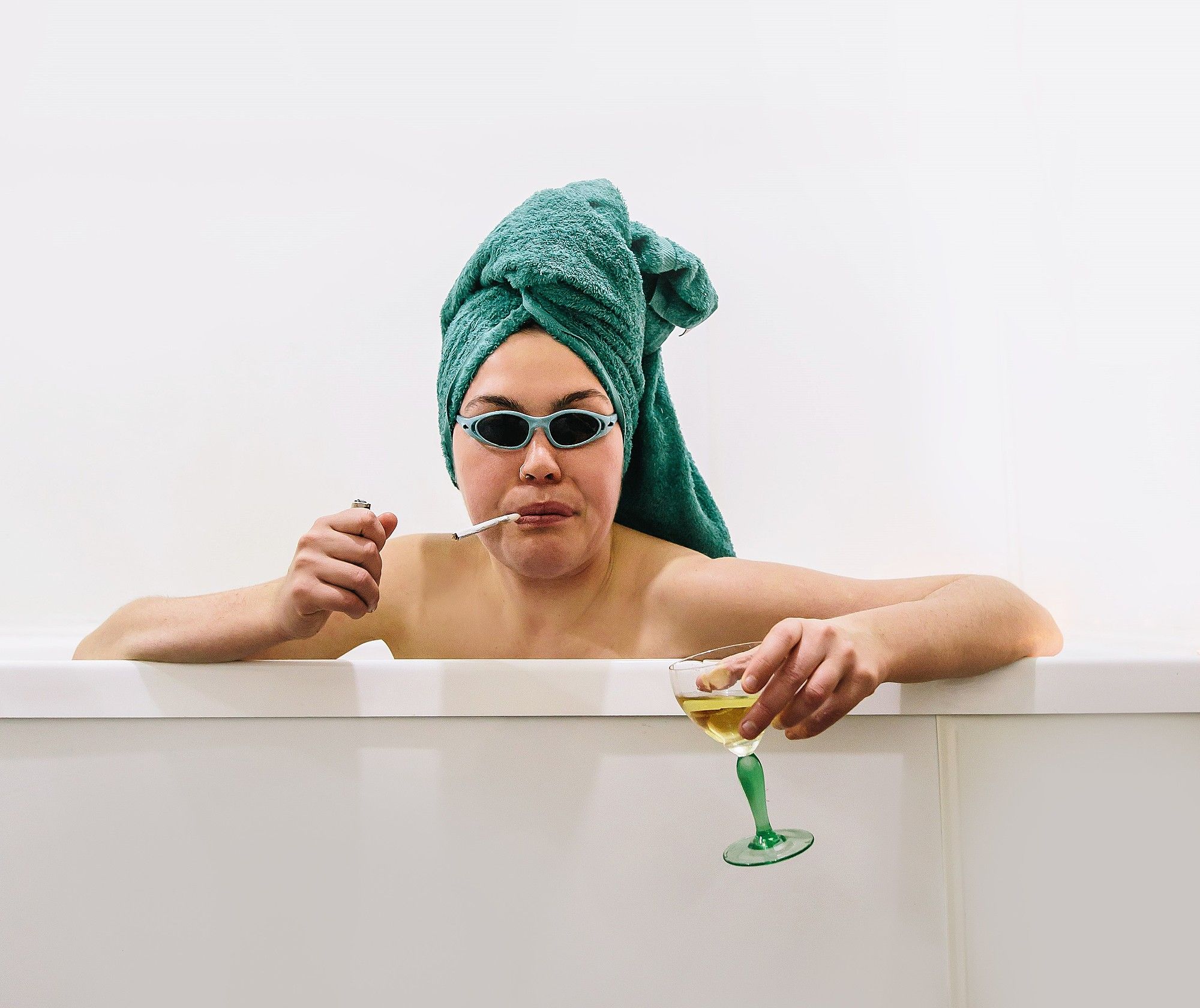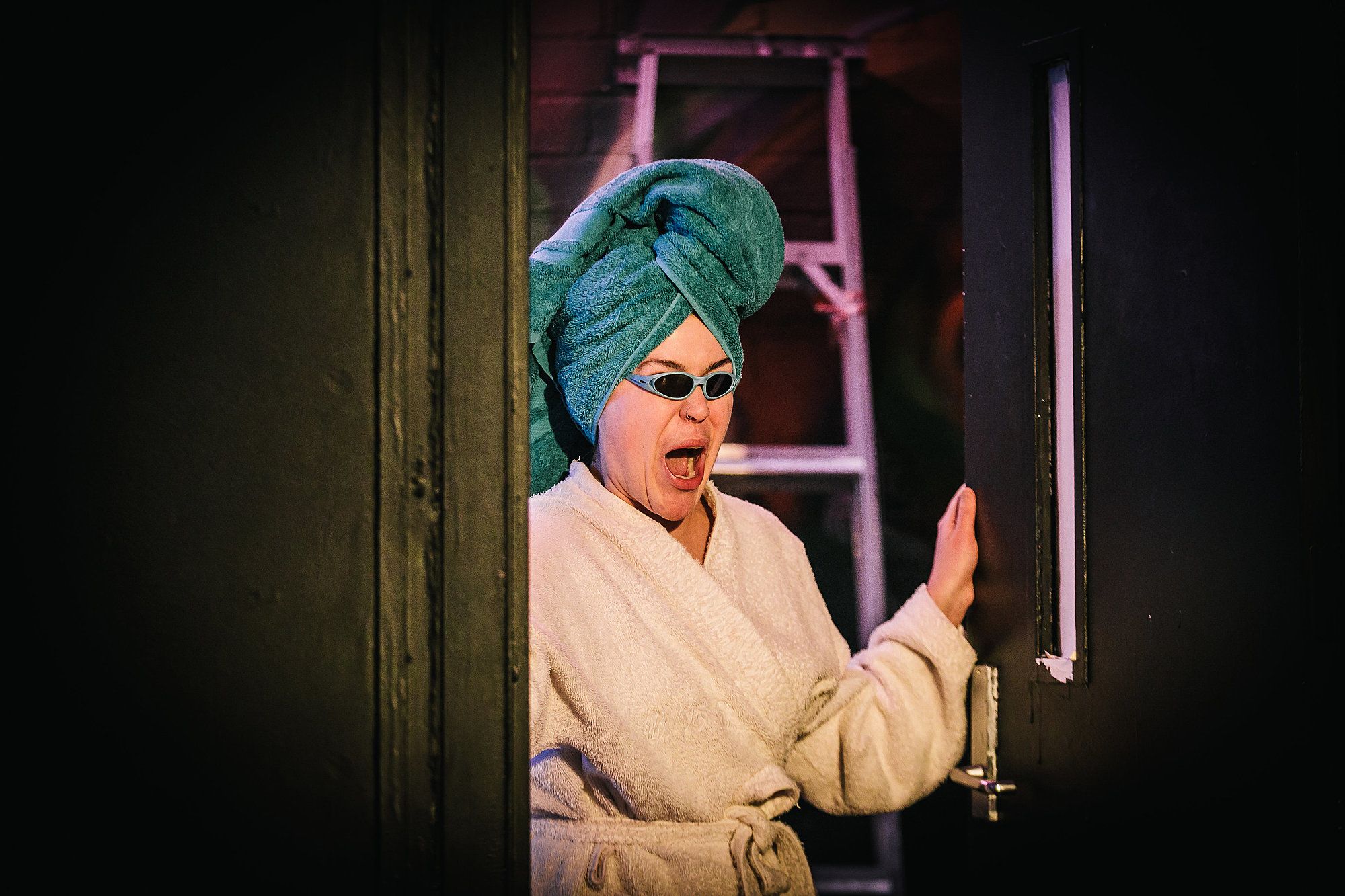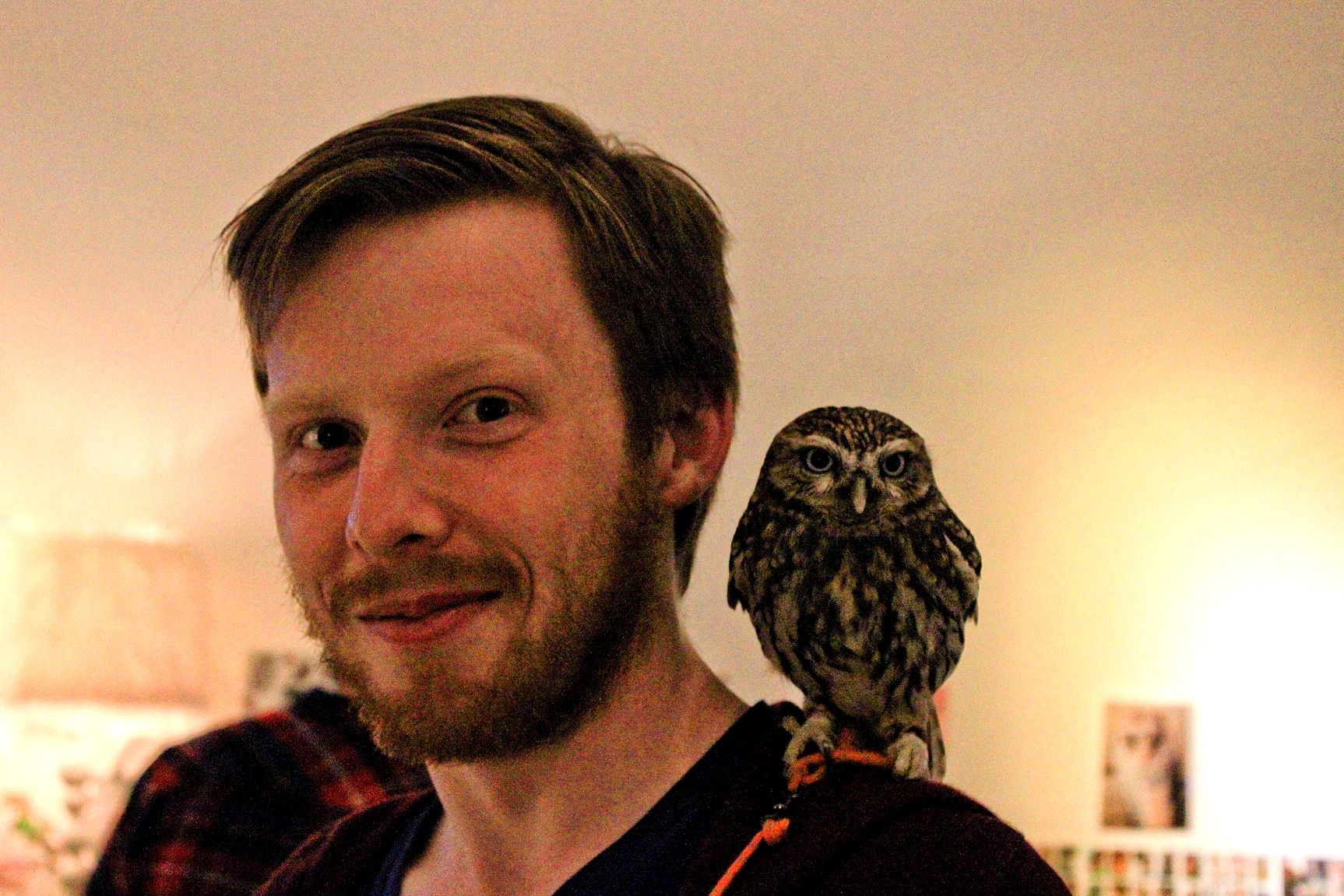Pass the Goon: A Review of Aunty
Adam Goodall rocks up on to Johanna Cosgrove's Aunty, a hilarious one-woman family reunion, and falls for its flamboyant titular host.
Adam Goodall rocks up on to Johanna Cosgrove's Aunty, a hilarious one-woman family reunion, and falls for its flamboyant titular host.
You just know Johanna Cosgrove’s one-woman comedy Aunty is going to be a little ripper the moment she enters. The way she throws the door open like an actress in a 1930s melodrama, the way she hollers “Oh my god! It’s my whānau!” in her thick bogan accent, the way she calls you “doll” and hugs you like she’s known you since you were knee-high to a bloody grasshopper. She tries to hug everyone, too. She’s so proud of her whānau, and god, you feel it.
Aunty’s a faded Westie belle who drags out her vowels and goes hard on her Riverstone sav. It’s the family reunion that she organises every year – we’re the family, her sisters and brothers and cousins and nieces and nephews – and she swans around her lounge like an empress, cajoling her nieces and nephews into topping up her glass and arm-wrestling each other. She’s the life of the party; our awkwardness is basically a foreign language to her.
Aunty’s a perfectly silly and surprisingly detailed creation and a bloody riot in Cosgrove’s hands. Her costume is so on point it’s a joke in itself: socks and jandals, a white towelling robe with a make-up smudge on one arm, an aquamarine towel perched on her head, and thin sunglasses that narrow her eyes and age her forty years. Cosgrove nails the harsh Pākehā-and-then-some accent and she has tonnes of fun with the erratic push-pull of bogan speech patterns. Her body language, too – when she bobs her head on each syllable of “Je-sus Christ”, or when she holds her wine out and her other hand up, wrist limp, like she’s just about to bring you in for the best story you’ve ever heard – is so accurate and so fluid that it feels intuitive, like this is something Cosgrove’s been doing her whole life.
It helps that Aunty is a very warm and gregarious person to be around. She rambles through her stories like every one of them is fried gold and lavishes affection on her family, insisting that any audience members who help her are her "faaay-vour-ite”. Like in a slightly isolated dog’s Don Juan and Jekyll and Hyde, that audience interaction feels friendly and safe because Cosgrove communicates how much she values it. She builds positive and funny relationships with individuals from the jump - “Phil,” she says to a man she’s hugging, obviously planning on returning to him later, “have you been working out? Have you been doing that Yoga-lates?” – and mostly avoids making them the butt of the joke.
Cosgrove holds us back, keeps things vague; this is all undercurrent, unspoken pain and tension that everyone knows about but no-one ever talks about or resolves.
Those relationships escalate a little haphazardly toward the end, the rules changing in a way that isn’t especially clear. Cosgrove passive-aggressively leaves the door open for emergent moments between performer and audience at a few points; during one of these moments, the people sitting next to me seem keen to join her, to resolve that moment, but unsure of whether they’re actually allowed to.
It’s not that this action is exclusionary, it’s just that we’re involved in the worst, most uncomfortable parts of family. There’s a tragedy underpinning Aunty, a darkness that you can see coming a mile away. You can hear it when Aunty talks about her husband, Derek, laid up downstairs with scoliosis of the spine and manning the bluetooth speakers. You can hear it when she talks about her daughter Shannon, yet to arrive at the party. You can hear it when she tells stories about her two dead, “morbidly obese” friends, or when she says “Maori” in that crow-like Pakeha drawl, or when she sneers at Malaysian curry. It’s a tone of petty, ‘playful’ judgment, papered over with caveats and cackling laughter. And you can see it when she sculls wine after wine after wine, working through one bottle, then two, then three.
It’s a little frustrating that we don’t get too deep into that darkness. Cosgrove holds us back, keeps things vague; this is all undercurrent, unspoken pain and tension that everyone knows about but no-one ever talks about or resolves. We could stand to go deeper. Cosgrove doesn't challenge our hard-built affection for Aunty too much; she could push us further past the stereotype, make her a more complicated figure to love. Without that, it’s hard not to feel like a bit of an observer, like someone outside the family.
Even if we don’t know as much about Aunty and her pack as we want to, though, her party is still an absolute bloody delight. It’s full of love and compassion and just cynical enough to not seem sentimental, which is pretty impressive when your show literally has an all-audience dance party. Grab some friends, grab a wine, and grab one of Aunty’s Southland cheese rolls (seriously, it’s on the table, she wants you to eat them! That’s what they’re there for!) Aunty is joyful and crack-up and almost everything you want comedy to be.
Aunty runs from 3 to 7 October at BATS Theatre.
Tickets available here.



